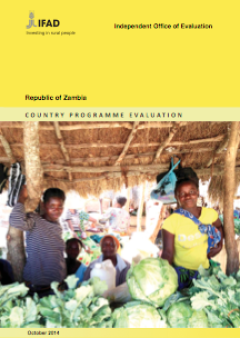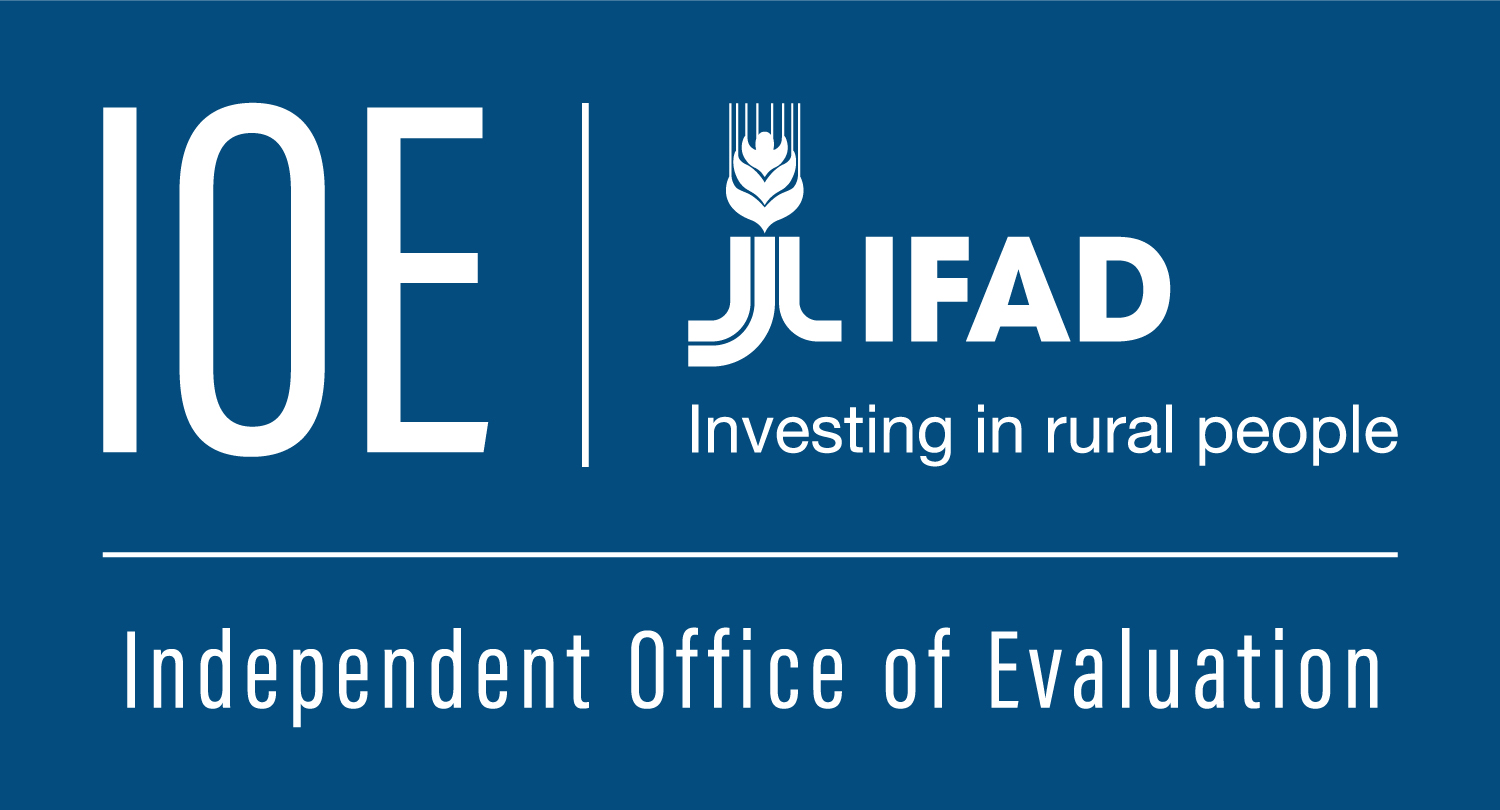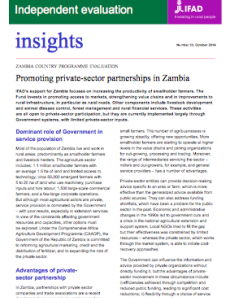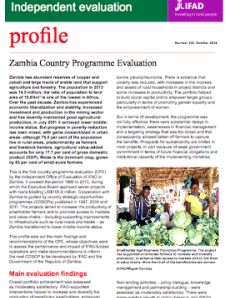
Republic of Zambia Country Programme Evaluation
Since 1981, when IFAD started operations in Zambia, it has financed 13 agriculture and rural development projects on highly concessional terms. The costs amount to US$274.2 million, which included US$188 million in loans from IFAD and US$51 million in counterpart funding from the Government and beneficiaries.
The interventions supported by IFAD have helped to increase and diversify production by beneficiary smallholder farmers, enhance access to markets and improve the control of livestock diseases such as east coast fever and contagious bovine pleuropneumonia. There is evidence that the poverty-reduction component has helped to increase rural household incomes and assets and promote some improvements in productivity. The portfolio is also contributing to augment the social capital and empowerment of the target groups, in particular by promoting gender equality and the empowerment of women.
The evaluation found, nonetheless, that the development effectiveness potential of the programme was not fully realized because: i) there were substantial delays in implementation and weaknesses in financial management; ii) there was limited success in developing a cohesive country programme; and iii) the targeting strategy in the country strategic opportunities programme was too broad and did not sufficiently focus on the most disadvantaged households and communities.
The evaluation noted some successes in policy engagement, in connection to the development of the rural finance and agriculture policies and to IFAD's contribution to raise awareness and capacity in the approach of "agriculture as a business” in the country. Collaboration with the private sector is incipient, but was constrained by uncertain government policies. Zambia's new status will require a different level of partnership in line with IFAD's strategy for engagement with middle-income countries. This will include a more customized programme that responds to the needs and priorities of the rural poor.
The evaluation report includes the agreement at completion point summarizing the main evaluation findings. It also presents the recommendations agreed upon by the Government of the Republic of Zambia and IFAD, including the timelines and roles and responsibilities of the different partners in the implementation of the evaluation's recommendations. In closing, I hope the results of the evaluation will be useful, in promoting accountability and learning for IFAD's better future performance and development results in Zambia.
See also:
- Zambia Country Programme Evaluation Profile
- Insights: Promoting private-sector partnerships in Zambia



